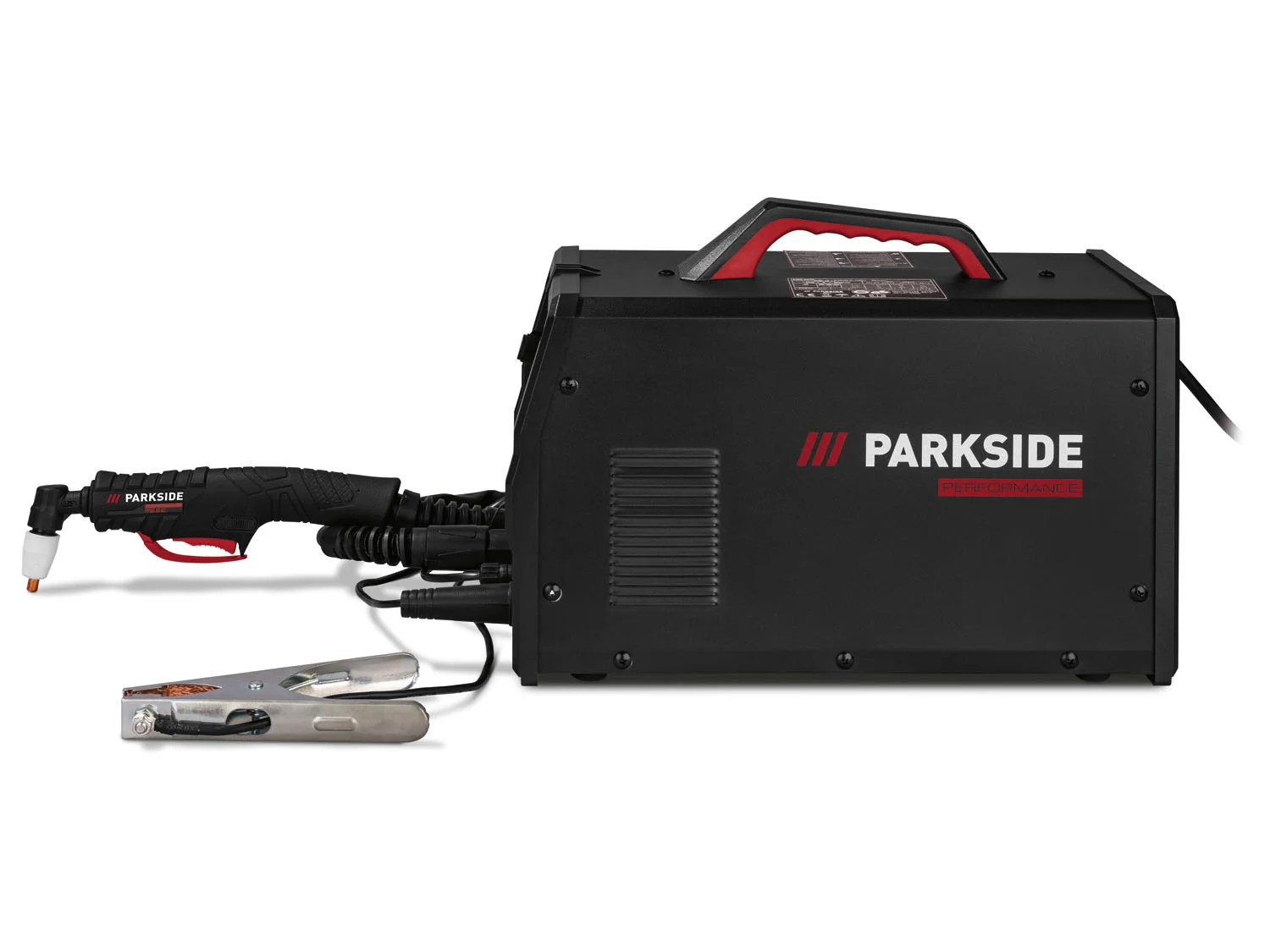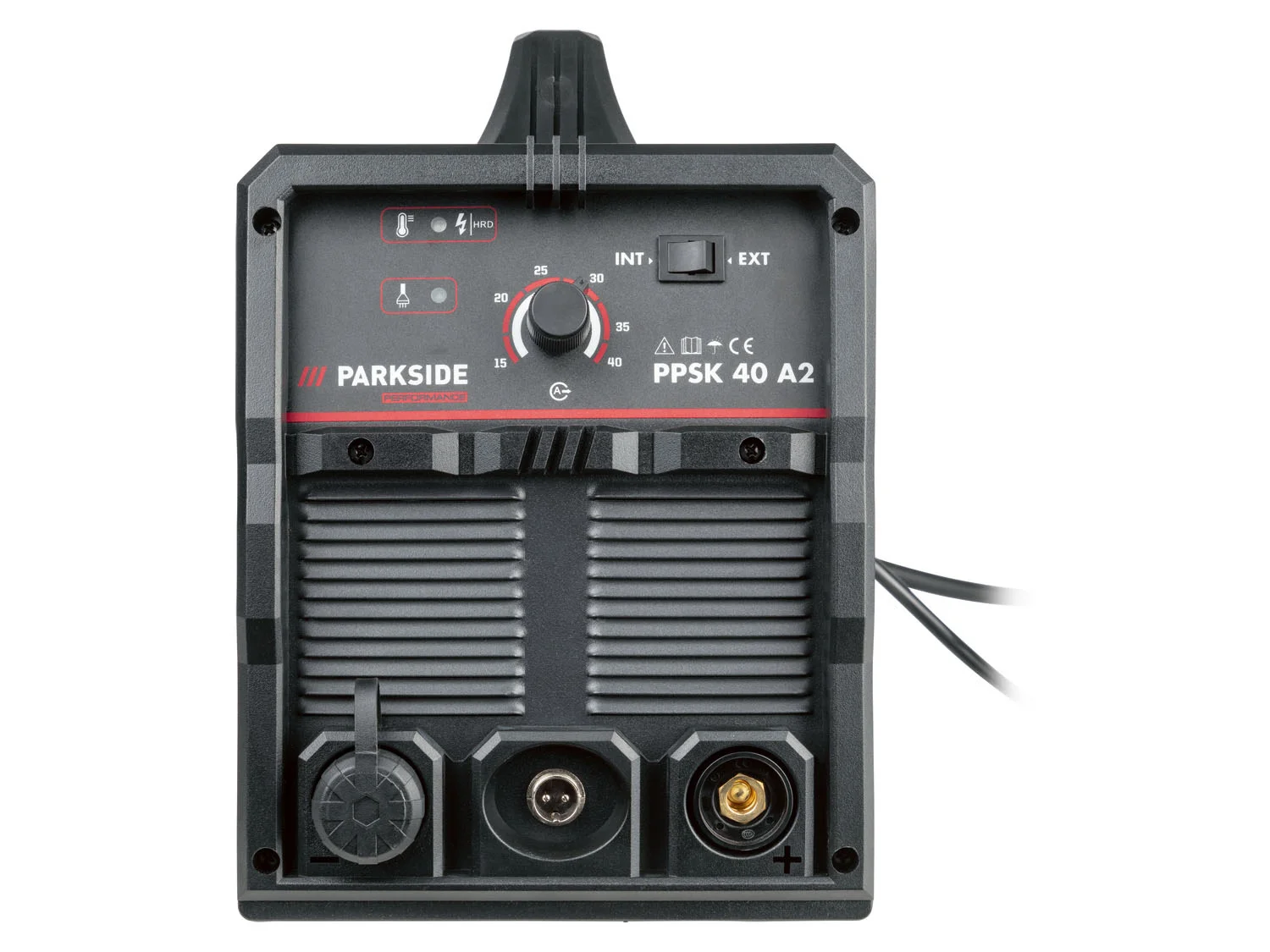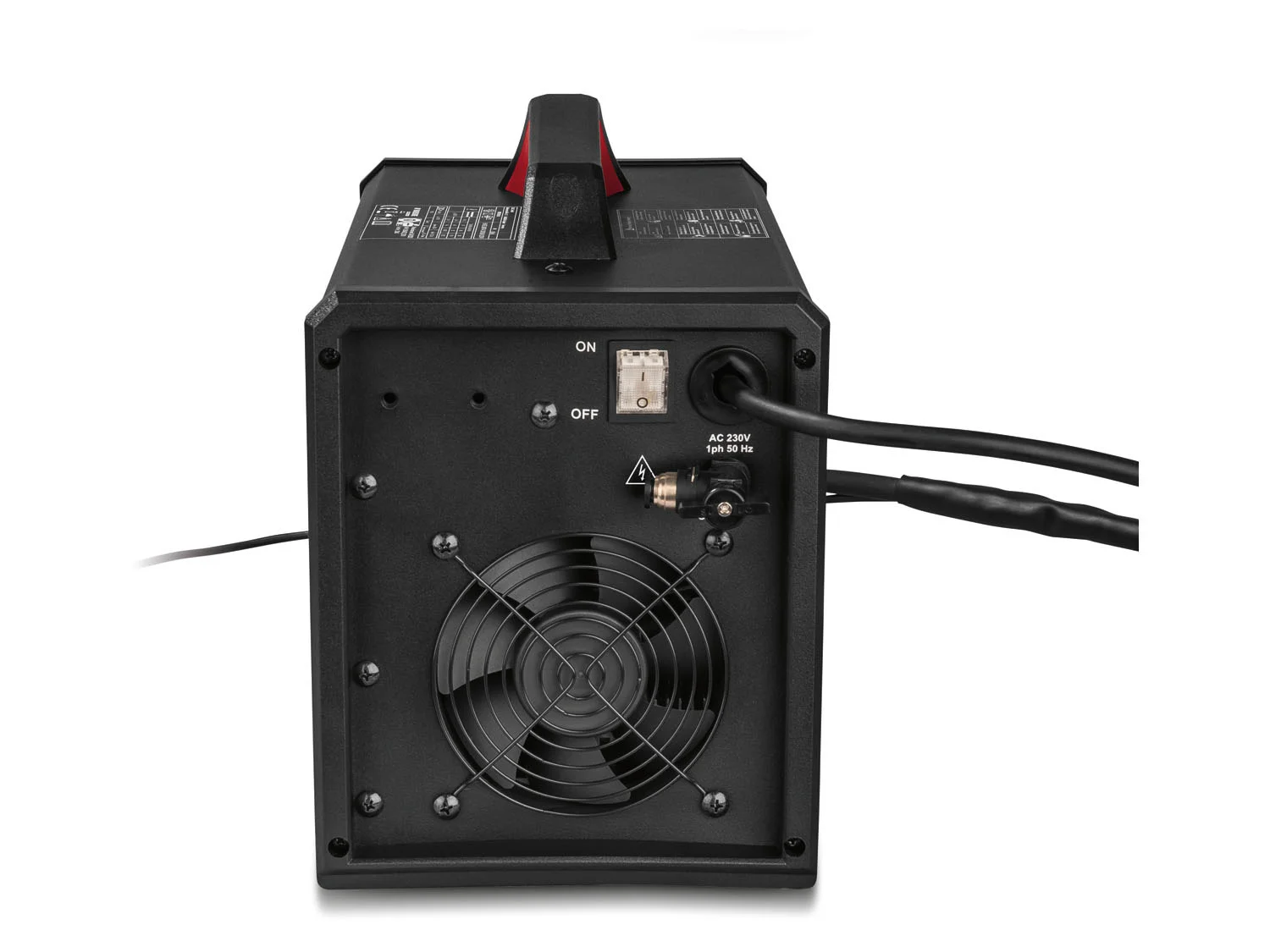plasma cutter with compressor »PPSK 40 A2«, 230 V
€199.00
✓ Completely pre-assembled and ready for immediate use
✓ Also ideal for mobile use
✓ For precise and clean cuts
Add to wishlistAdd to compare
Category: Tools
Description
Characteristics
- With integrated compressor – external compressed air supply not required
- Completely pre-assembled and ready for use
- Also ideal for mobile use – compact design and low weight
- Electronically controlled, calm and uniform plasma jet
- For precise and clean cuts up to 12 mm material thickness
- Suitable for cutting steel, iron, stainless steel, aluminium and copper
- Continuously adjustable cutting current (15 to 40 A)
- High-quality 2.5 m cutting cable with interchangeable burner attachments and removable roller guide
- Grounding cable (2 m) with strong clamp
- 2-meter compressed air hose with quick connection system (“Quick-Connect”)
- Active electric fan cooling
- Overload protection by thermal monitor with indicator light
- Housing made of painted sheet steel with ergonomic carrying handle
- Additional compressed air inlet for alternative compressed air supply via external compressor
Included accessories: 3 torch covers (1 pre-assembled), 3 electrodes (1 pre-assembled), 1 roller guide, compressed air hose with quick connection system (“Quick-Connect”), ground clamp with 11 AWG cable (2 m), cutting torch with cutting cable (2.5 m)
Technical data
- Cutting process: plasma jet, electronically controlled
- Cutting current: 15–40 A
- Cutting capacity: max. steel 12 mm / iron 10 mm / stainless steel 8 mm / aluminium 8 mm / copper 4 mm
- Compressed air supply: via integrated compressor
- Working pressure when using an external compressor: 4–4.5 bar
- Nominal voltage: 230 V / 50 Hz
material
painted sheet steel
Mass
- Device: approx. 39.6 x 20 x 24.4 cm (without connections)
- Power cable length: approx. 2 m
Weight
approx. 9.8 kg
notes
Electromagnetic compatibility: Class A. This Class A welding equipment is not intended for use in residential areas where the power supply is via a public low-voltage supply system. It may be difficult to ensure electromagnetic compatibility in these areas due to both conducted and radiated interference.







































